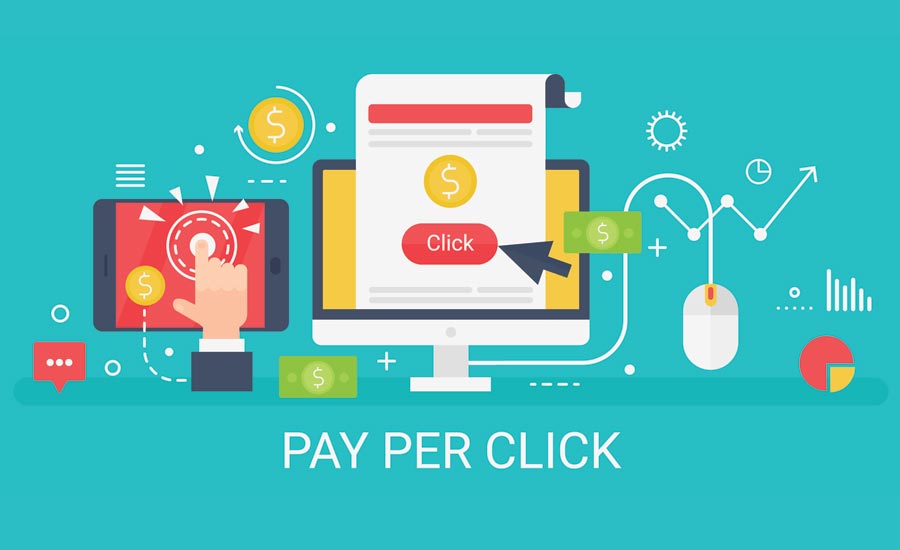How to Manage Your Pay Per Click Advertising Campaigns for Maximum Results? Pay per click (PPC) advertising is an effective way to drive traffic and increase conversions.
However, to get the most out of your campaigns, you need to manage them effectively. In this article, we will discuss how to manage your PPC advertising campaigns for maximum results.
- Setting Goals and Objectives
- Understanding your business goals and objectives
- Setting measurable goals and objectives for your PPC campaigns
- Aligning your PPC goals with your business goals
- Conducting Keyword Research
- Identifying relevant and targeted keywords
- Conducting competitor analysis
- Creating a keyword list for your PPC campaigns
- Creating Compelling Ad Copy
- Writing effective ad copy that resonates with your target audience
- Highlighting unique selling propositions (USPs)
- Testing and optimizing ad copy for maximum click-through rates (CTR)
- Designing Landing Pages
- Creating landing pages that are relevant to your ad copy and keywords
- Making sure your landing pages are user-friendly and easy to navigate
- Optimizing landing pages for conversions
- Monitoring and Analyzing Campaign Performance
- Tracking key performance indicators (KPIs) such as CTR, conversion rate, and cost per click (CPC)
- Identifying areas for improvement and making necessary changes
- Continuously testing and optimizing your campaigns
- Setting and Managing Budgets
- Allocating budgets for each campaign
- Monitoring and adjusting budgets based on campaign performance
- Setting realistic expectations for return on investment (ROI)
- Utilizing Ad Extensions
- Using ad extensions to enhance your ad copy and increase visibility
- Incorporating extensions such as site links, call extensions, and location extensions
- Monitoring the performance of ad extensions and adjusting as necessary
- Implementing Remarketing Campaigns
- Targeting users who have previously interacted with your website or ads
- Creating customized ads and messaging for remarketing campaigns
- Optimizing remarketing campaigns for conversions
- Working with a Professional Agency
- If you do not have the time or expertise to manage your PPC campaigns, consider working with a professional agency.
- A professional agency can help you create and optimize campaigns for maximum results.
- Make sure to do your research and choose a reputable agency with experience in your industry.
- Staying Up-to-Date with Industry Trends
- The world of PPC advertising is constantly evolving, so it is important to stay up-to-date with industry trends and best practices.
- Subscribe to industry newsletters and attend conferences to stay informed.
- Continuously testing and experimenting with new strategies can help you stay ahead of the competition.
- Avoiding Common PPC Advertising Mistakes
- Common mistakes in PPC advertising include targeting broad keywords, not testing ad copy, and neglecting mobile optimization.
- Avoiding these mistakes can help you achieve better results and maximize your return on investment.
Conclusion: Managing your PPC advertising campaigns can be a complex and time-consuming process, but the benefits can be substantial. By setting clear goals and objectives, conducting thorough research, creating compelling ad copy and landing pages, monitoring and analyzing performance, setting and managing budgets, utilizing ad extensions, implementing remarketing campaigns, working with a professional agency, staying up-to-date with industry trends, and avoiding common mistakes, you can optimize your PPC campaigns for maximum results. Remember to continuously test and experiment with new strategies to stay ahead of the competition.
FAQs:
Pay per click advertising is a type of digital advertising where advertisers pay a fee each time someone clicks on one of their ads.
Advertisers bid on keywords related to their business, and their ads are displayed to users who search for those keywords. Advertisers pay a fee each time someone clicks on their ad.
The cost of pay per click advertising varies depending on factors such as the competitiveness of keywords, the quality of ad copy, and the targeting of the campaign.
Key performance indicators such as click-through rate, conversion rate, and cost per click can help you measure the success of your campaigns.
You should monitor and adjust your pay per click advertising campaigns on a regular basis, at least once a week, to ensure maximum results.
PPC involves paying for ads to appear at the top of search engine results pages, while SEO involves optimizing your website to appear organically in search results.
Conducting thorough keyword research and analyzing competitor campaigns can help you identify relevant and targeted keywords for your PPC campaigns.
Yes, many social media platforms such as Facebook and LinkedIn offer PPC advertising options.
The time it takes to see results from PPC advertising varies depending on factors such as the competitiveness of keywords and the quality of ad copy and landing pages.
It is not necessary to work with a professional agency for PPC advertising, but doing so can provide expertise and save time and effort in managing campaigns.




